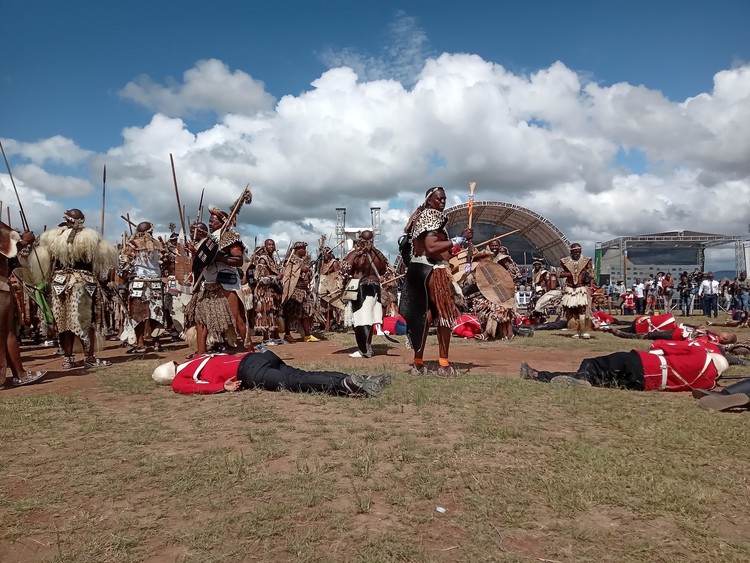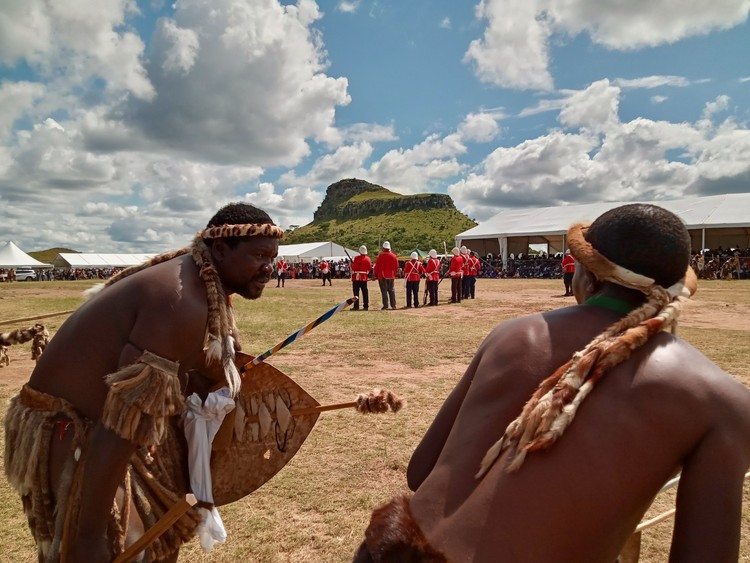Video: Zulu victory over British commemorated
Mayor says the Isandlwana battlefield will be used to develop the local economy
Re-enactment of the Battle of Isandlwana. Video: Bongane Motaung
The Battle of Isandlwana took place on 22 January 1879 during the Anglo-Zulu War between the British Empire and the Zulu Kingdom. About 20,000 Zulu warriors, commanded by King Cetshwayo, defeated approximately 1,800 troops of the British forces. Isandlwana Mountain has been named the “Holy Mountain”.
Every year, the KZN Premier, representatives of the Zulu Kingdom and the Department of Arts and Culture commemorate the event with battle demonstrations.
Nquthu Mayor Lindokuhle Shabalala said there were plans to develop the local economy using the battle site.
At the demonstration of the the Battle of Isandlawana, Zulu warriors celebrate after defeating the British. Photo: Bongane Motaung
“Our provincial government has promised to install tar roads to the battlefield so it can be easy for everyone to access the area, including tourists, because it will economically develop the villagers of Nquthu, who are doing crafts.”
“As a municipality, we allocated a budget to build a hall with enough space to accommodate Zulu warriors during this commemoration, and another structure would be built to accommodate local artists to open their exhibition shops where everybody visiting the battlefield would buy from them,” he said.
Zulu warriors demonstrated the “horn” attack strategy. Zulu warriors draw fire by approaching directly, while other warriors attack from the flanks. Photo: Bongane Motaung
Support independent journalism
Donate using Payfast

Don't miss out on the latest news
We respect your privacy, and promise we won't spam you.
Next: Massive SLAPP suit against environmentalists withdrawn
Previous: Judge’s sexual harassment tribunal: advocate implies complainant sanitised her part
© 2025 GroundUp. This article is licensed under a Creative Commons Attribution-NoDerivatives 4.0 International License.
You may republish this article, so long as you credit the authors and GroundUp, and do not change the text. Please include a link back to the original article.
We put an invisible pixel in the article so that we can count traffic to republishers. All analytics tools are solely on our servers. We do not give our logs to any third party. Logs are deleted after two weeks. We do not use any IP address identifying information except to count regional traffic. We are solely interested in counting hits, not tracking users. If you republish, please do not delete the invisible pixel.


